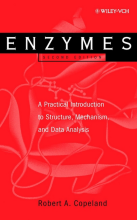Summary: Food Components And Health
- This + 400k other summaries
- A unique study and practice tool
- Never study anything twice again
- Get the grades you hope for
- 100% sure, 100% understanding
Read the summary and the most important questions on Food components and health
-
1 Week 1 Basic principles
-
1.2 Study disign
This is a preview. There are 4 more flashcards available for chapter 1.2
Show more cards here -
What are the types of experimental studies and what is it?
Intervention studies are the type
Experimental study's are the most powerful. You actually do an interventional experiment. -
What are the types of observational studies?
- prospective cohort studies
- case-control studies
- cross sectional studies
- Ecological population based studies
Diet of people is not changed. They are studied in there natural context. It can not lead to hard conclusions only associations. -
What is a FFQ?
A FFQ stands for food frequency questionnaire
It assess how often you eat certain foods and in what amount.
It is a dietary assessment method -
What is a 24 h dietary recall?
This is a dietary assessment method.
A dietitian writes down what a person ate in the last 24h (usually performed several times. -
What is a food diary?
This is a dietary assessment method.
It is written down and weighted what people eat.
Unfortunalty people tend to change there eating habits and loos motivation and forget to write down things. -
What are food composition tables?
These tables contain information about nutritional content of food, unfortunately they are incomplete and many food products are not listed. -
What is a cross sectional study?
This is a observational study.
The dietary intake is linked to a health or disease related paramater. This is done at a single moment.
The downside is that you don't now which one came first. (diet coke or obesity)
So there is risk of cofounding -
What is a case control study?
This is a observational study.
The dietary intake of sick people is compared with the dietary intake of healthy people. So there is a control group. You look in the past with this study with a food frequency questioner.
The advantage is that you can study rear diseases.
The disadvantage is that there could be bias and cofounding. -
What is a cohort study?
People are flooded for a long time and when they get sick later in life it is coupled to the things they awnserd in the FFQ.
This is the most powerful observation study.
disadvantages:
they relay on FFQ
Cofounding can happen -
What is a intervention study?
You don't just observe you change something. So you intervene
.
2 groups are made one who gets the treatment and one who gets a placebo. You measure the hanges that happen before and after the treatment.
advantage: you have avoidance without cofounding and bias.
disadvantages: If you wand to see if people get have to follow them for many years.
- Higher grades + faster learning
- Never study anything twice
- 100% sure, 100% understanding
Topics related to Summary: Food Components And Health
-
Alimentary track
-
Carbohydrates - Chemistry of charboydrates
-
Carbohydrates - Carbohydrate digestion and absorption
-
Carbohydrates - Carbohydrates metabolism
-
Carbohydrates and health - Health effects of sugar
-
Carbohydrates and health - Replacing sugar by non nutritive sweetners
-
Carbohydrates and health - Diabetes
-
Lipids - Chemistry of lipids
-
Lipids - Lipid digestion and absorption
-
Lipids - Fat tissue
-
Lipids - Essential fatty acids
-
Lipids and health - Cardiovasculair risk factors
-
Lipids and health - Dietary lipids and halth
-
Proteins and Health - Introduction Proteins
-
Proteins and Health - Protein digestion absorption and synthesis
-
Proteins and Health - Protein functions
-
Proteins and Health - Protein turnover and nitrogen balance
-
Proteins and Health - Protein quality and recommendations
-
Energy homeostasis and energy balance - Regulation of food intake
-
Energy homeostasis and energy balance - Energy value of nutrients
-
Energy homeostasis and energy balance - Energy expenditure
-
Weight management - Assessing obesity
-
Weight management - Causes of obesity
-
Weight management - Possible solutons for obesity
-
Fat soluble vitamins and health - Introduction to the vitamins and dietary reference intake
-
Fat soluble vitamins and health - Vitamin A
-
Fat soluble vitamins and health - Vitamin D
-
Fat soluble vitamins and health - Vitamin E
-
Fat soluble vitamins and health - Vitamin K
-
Water soluble vitamins and health - Main functions of the water soluble vitmains
-
Water soluble vitamins and health - Vitamin C
-
Water soluble vitamins and health - Folate
-
Water soluble vitamins and health - Vitamin B12
-
Water soluble vitamins and health - Cause of vitamin deficiency
-
Water minerals and health - The role of water in the body
-
Water minerals and health - Water balence
-
Water minerals and health - Health effects of water
-
Water minerals and health - Mineral overview
-
Water minerals and health - Sodium and Potassium
-
Mineral trace elements and health - Calcium
-
Mineral trace elements and health - Iron
-
Mineral trace elements and health - Other trace elements - iodine
-
Mineral trace elements and health - Other trace elements - Selenium
-
Nutrition and sport




























